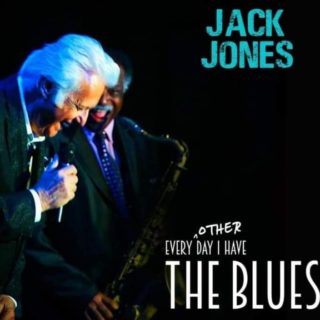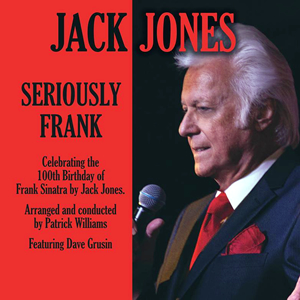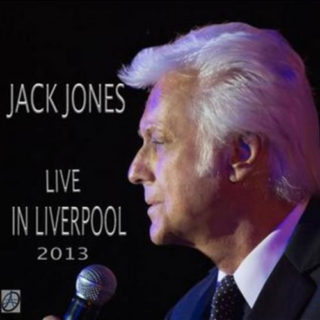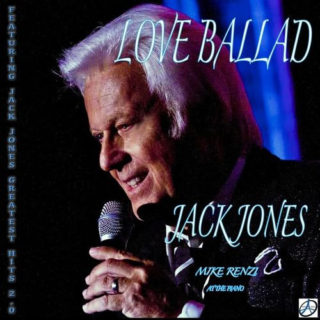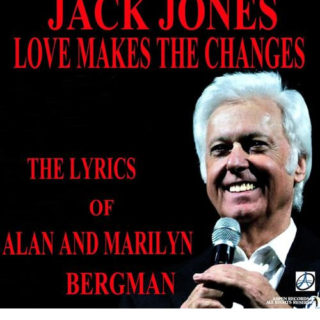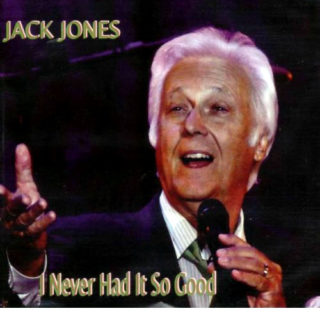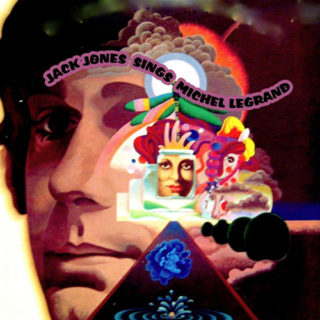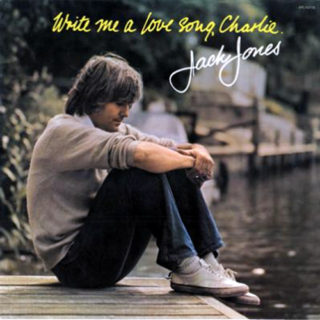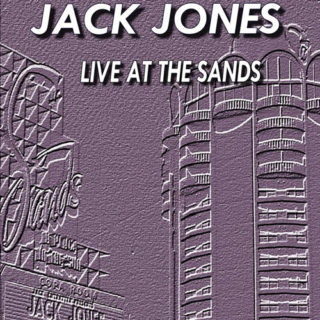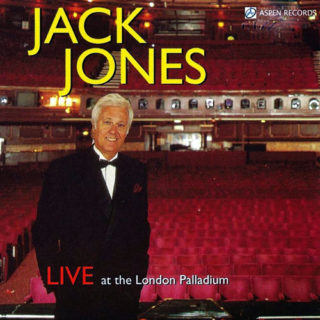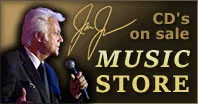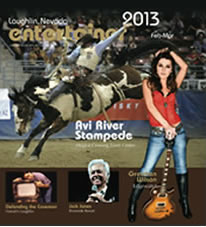
 When you think Jack Jones, a gas station attendant isn’t an image that comes readily to mind. In fact, it is probably one of the last images of Jones you would conjure up, right there with bullrider and sheep shearer. After all, Jack Jones is sophisticate, class, style, grace, romance. Pumping gas and washing windshields? Never.
When you think Jack Jones, a gas station attendant isn’t an image that comes readily to mind. In fact, it is probably one of the last images of Jones you would conjure up, right there with bullrider and sheep shearer. After all, Jack Jones is sophisticate, class, style, grace, romance. Pumping gas and washing windshields? Never.
Well, a gas station attendant pumping gas and washing windshields was what Jack Jones was doing as a day job when he first started his musical career. In fact, he was washing the windshield of a car when he heard a cut from his first album come over the car’s radio.
“Hey, son. You missed a spot.”
“Yea, but did you hear that sax fill? Oh, you mean the windshield.”
Well, Jones soon put down the squeegee and became one of the top romantic balladeers of American music-the genre’s equivalent to Audrey Hepburn and fashion-that is, the picture of elegance and sophistication. A classic style that comes both easily and with grace, yet with the innate ability to never take anything too seriously-particularly yourself. Hepburn chose a gown the same way Jones chooses what he wants to sing, knowing instinctively what works, what doesn’t and how to make it ones own. A sense of humor-definitely a “must” accessory.
The Audrey Hepburn connection is more than just a metaphor. Others have seen the similarity in their respective styles. In fact, Jones’ last No. 1 ranked song on the charts was “Lady,” a tribute to Hepburn.
But most casual observers think of Jack Jones as the “guy who sang that ‘Love Boat’ song”-and that is a shame because Jones music has plied a lot deeper and varied waters over the decades, earning praise and accolades from some impressive corners.
Mel Torme called Jack Jones, “the most ‘pure’ singer in the world.” Judy Garland said he was the ‘best jazz singer, ever”; and Frank Sinatra said Jones “is a major singer of our time.”
Now, “pure” and “jazz” don’t aptly describe the mainstream songs that Jones turned into hits…the songs that made him famous before the “boat”-songs like his Grammy winning “Lollipops and Roses,” and the now politically incorrect, “Wives and Lovers.”
But Sinatra, Garland and Torme knew of what they spoke. Even when he sang pop tunes, Jack Jones took the ordinary and elevated it to another level. Songwriters and composers knew this well. That is why the likes of Sammy Cahn, Jimmy Van Heusen, Michel Legrand and Burt Bacharach and Hal David sought him out to put life and lift into their songs. And it is why he received all the accolades and awards.
In addition to his recordings, Jack Jones is renowned as a leading interpreter of musical theater, with acclaimed performances in such staples as “Guys and Dolls”, “South Pacific”, “Pajama Game”, and his signature role as Don Quixote in “Man of La Mancha.”
Jones’ other credits include film and television roles; an internationally syndicated TV variety show; performances at Carnegie Hall, the Kennedy Center, and the White House.
Jones continues to tour, to record, to charm and to deliver his music in that same mellow, grand style.
The following are some of the insights into Jack Jones we got during our phone interview with him last year when he played the Riverside Resort…
Style
Jones: For a long time, none of us had a “style”-all of us sounded the same. Steve Lawrence, Vic Damone and I sounded alike.
But I think the more worn your voice becomes in the song choices you make, the more it just seems to evolve and you develop your own style.
No strain
Jones: I just try to sing carefully, no showboating You gotta keep from pushing it too far. I have a three-octave range and sometimes I get a little greedy. I have to keep myself in check.
Early radio
Jones: The first time I heard myself on radio I was driving on Sunset Boulevard and I almost ran off the road. KMPC (in L.A.) was playing that kind of music and they started playing my records.
At the time, there wasn’t enough singing jobs coming in so I went back to the same gas station where I worked when I was in high school. I was wiping off this guy’s windshield who had the top down on his convertible when the song came on the air. I couldn’t tell him (it was me), because he wouldn’t have believed me. That was the moment I really realized “I’m finally getting somewhere.”
Don Quixote & ego
Jones: I don’t think there’s a singer who deep down doesn’t honestly believe there’s no greater singer than he is. That’s a singer’s ego.
I did “Man of La Mancha” for a season. There’s been thousands of actors who have played Don Quixote–local theater, regional theater and national theater-and I don’t think there’s one of them who doesn’t think he’s the definitive Don Quixote.
My dad, Allan Jones, was one of them. He did “Man of La Mancha” on the straw-hat circuit and received the Straw Hat Award for it. I always thought I wasn’t going to do Don Quixote because I know how much my father was Don Quixote. But I was asked to perform it and I ended up doing it.
And I was Don Quixote. It’s a roll that takes you over and you become that person.
“Impossible Dream”
Jones: I had one of these “impossible dream” moments in my youth. Don Quixote sings to Aldonza, who he’s renamed Dulcinea, to demonstrate his love to her. She’s really a hooker but all he sees is a beautiful virgin like woman.
When I was young, I was naive and, one time, went with a bunch of my high school friends to Tijuana. While they were going after what they went down there for, I wound up in a bar talking to a prostitute and singing to her, “What’s a beautiful girl like you doing in a place like this,” and that’s as far as I went. My friends laughed at me all the way back home.
Favorite recording session
Jones: It was when I was standing in the middle of a huge orchestra in an old converted church in Paris with Michel Legrand conducting. It was all live but I brought the recording back and mixed it in Hollywood at RCA, tweaking a lot of leakage. It was a labor of love and took a long time to do it. I was so in love with the arrangement and the orchestra.
Favorite composers
Jones: The Gershwins are my very favorite. I did a Gershwin album in England with a huge orchestra. The music was fabulous and the arrangements were wonderful.
I also love an album I did as a tribute to Alan and Marilyn Bergman called Love Makes the Changes.
Humor
Jones: I kind of see everything that comes out of my mouth as something you might hear in a sit-com from the ’70s. I like to have fun. You get to a certain stage in life where things just don’t look quite as serious as they used to.
I use the humor in the songs I sing. There’s a song I do called “Folks Who Live on the Hill” by Jerome Kern, which is a classic story about a meaningful relationship between a couple with their kids growing up. I follow it with a song by Randy Newman called “Love Story,” which is irreverent and says the same thing in a strange way.
The whole “Love Boat” thing
Jones: The song was presented to me by Paul Williams, who wrote it. He said to me, “We’d like you to sing this for the show because it’s going to be a series.”
I said, “Of course, I’d be honored and I certainly will sing it, and I wish you luck.”
But I was thinking, “who’s going to watch a show about a cruise ship?”
Well, I went on to inaugurate three Princess ships and became very much in demand on cruises. I performed on the Norwegian line and Royal Caribbean because I “was the guy who sang ‘Love Boat.'” At the time, that show really helped the cruising industry.
On the Princess ships, they still play my record as they sail away from port. Sometimes, when I was on a cruise, I would be on deck singing along with it. I’d go incognito and mingle with the passengers. It’s a narcissistic thing to do, I know. I remember one time when I started singing along with the song a woman turned to me and said, “Shhhhh.”
A touch of jazz
Jones: There’s a jazz vignette in the show where I perform one of my favorite jazz ballads, “Angel Eyes” written by an old friend Matt Dennis. It’s one of those real torch songs.




